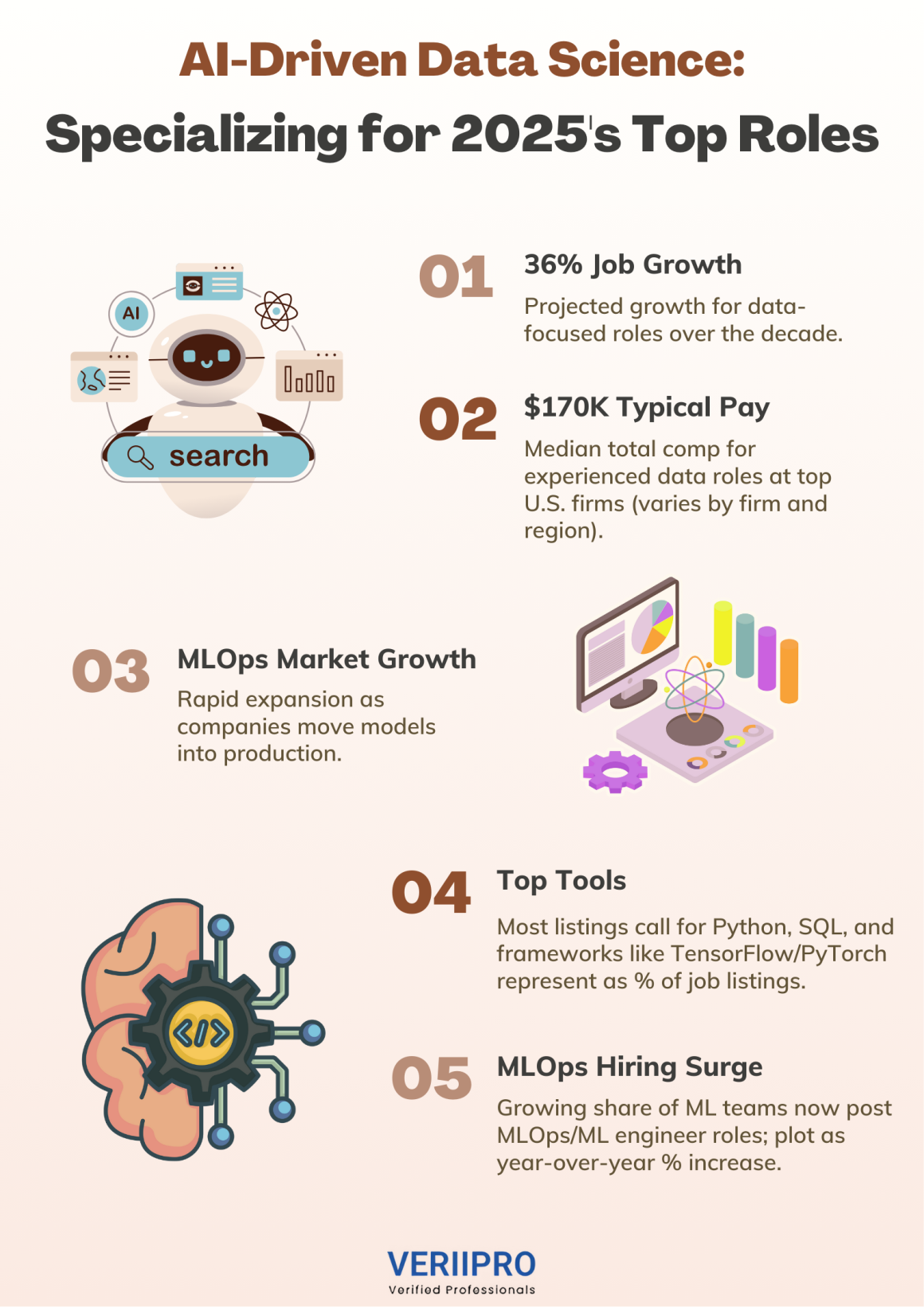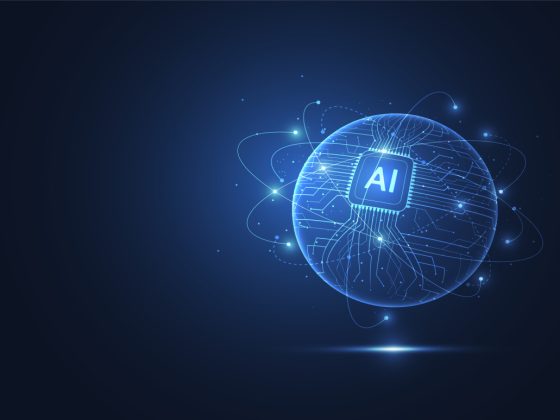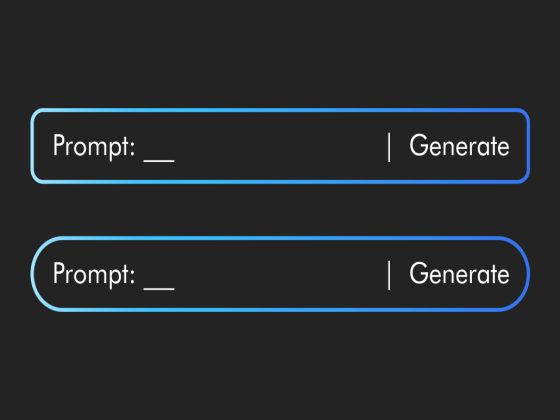AI-Driven Data Science: Specializing for 2025’s Top Roles
AI is reshaping data science fast — and employers want specialists who can turn models into real business value. If you want to focus your career on the highest-demand roles in 2025, this guide breaks down the key specialties, tools, and steps to get there.
Why specialize now
Demand for data and AI skills is strong: data-focused roles are projected to grow much faster than average over the next decade. Specializing (for example, in MLOps, applied ML, or data engineering) helps you stand out and move into higher-impact work faster.

Top specializations employers want
Pick one or two of these focus areas depending on whether you like building models, putting models into production, or working with large data systems:
- MLOps / Machine Learning Operations — engineers who automate model deployment, monitoring, and scaling as teams push models into production.
- Applied ML / ML Engineer — build and tune models for product features like recommendations and personalization.
- Data Engineering — design pipelines, ETL, and data warehouses so ML teams have reliable data.
- AI Product & Evaluation — measure model impact, set metrics, and run A/B tests to prove ROI.
- Research-to-Product (Applied Research) — adapt new algorithms into reliable, deployed systems.
Skills and tools to prioritize
Employers want practical, hands-on experience. Learn these core areas and use the official docs when you need reference material:
- Programming and modeling: Python, SQL, and deep-learning frameworks such as TensorFlow.
- Production tools: containerization and orchestration with Docker and Kubernetes.
- Cloud platforms: AWS, GCP, or Azure for managed ML and data services.
- Data engineering: Spark, Airflow, and data warehouse tech.
- Evaluation and ethics: metrics, bias testing, and monitoring plans to keep models safe and useful.
Certifications, courses, and learning path
Structured programs speed hiring. Combine a degree or bootcamp with targeted certifications and project work:
- Hands-on courses that build end-to-end pipelines.
- MLOps and cloud certifications showing production readiness.
- Public projects: publish a repo or demo that shows you can ship a model to a web app or API.
Real experience matters most
Hiring managers pay for proven results. Work on projects that show you can go from data to a deployed model:
- Build an end-to-end pipeline (data ingestion → model → API → monitoring).
- Use containers locally and practice deploying with CI/CD. Tools like VirtualBox are useful for local test environments.
- Contribute to open-source MLOps or data engineering projects.
- Join hackathons, Kaggle competitions, or community repos to show consistent, public work.
Pay and market signals
Senior data and ML roles pay well: experienced data scientists and ML engineers often earn total compensation well into six figures, reflecting the business value they deliver. Salaries vary by company, location, and level, but the market clearly rewards practical production experience.
How to position yourself for hiring in 2025
- Pick a specialization and focus your portfolio on it.
- Show production experience: monitoring, retraining, and incident handling.
- Know the data plumbing — most ML teams expect you to understand pipelines and storage.
- Communicate impact: hiring managers want to see how your work improved a measurable metric (conversion, latency, accuracy).
- Keep learning: follow community blogs, docs, and hands-on guides.
Closing Thoughts
Getting a top AI-driven data science role is about more than models — it’s about finding the right employer for your specialty. At VeriiPro we connect candidates who focus on MLOps, ML engineering, and data engineering with hiring managers who need those exact skills. From tailored job matches to help through interviews and offers, VeriiPro helps you find the role that moves your career forward. For exclusive openings and direct introductions, head to VeriiPro and let us help you find your next data science opportunity.








